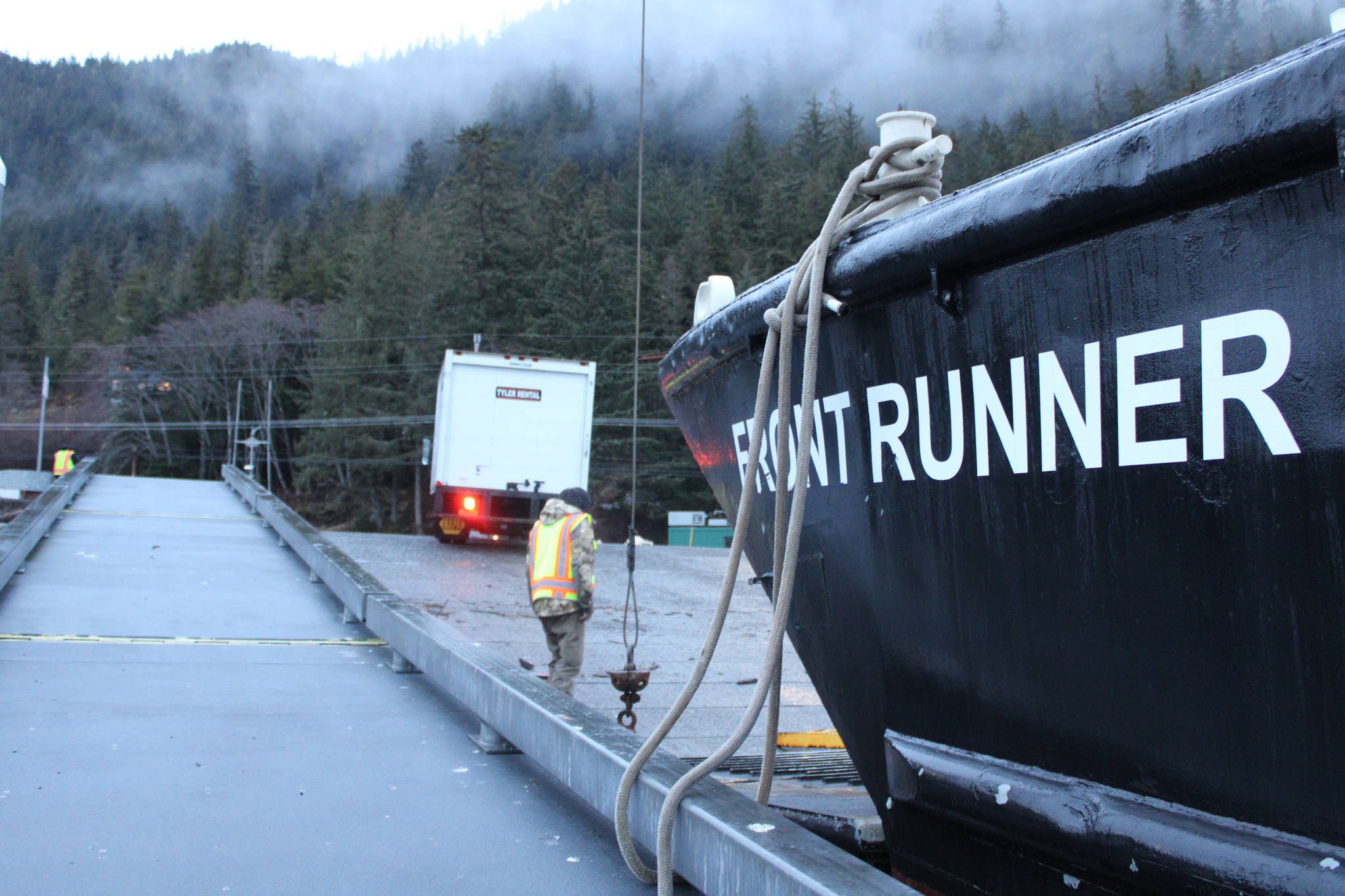By Win Gruening
A stark reminder of the capriciousness of Mother Nature visited neighboring Haines last week. Record-breaking rainfall triggered a massive landslide that destroyed multiple homes and left two residents missing and presumed dead. Flooding, high winds, and limited daylight hampered search efforts.
The Haines Borough requested helicopter backup from the Coast Guard and National Guard and some residents of Beach Road were evacuated by boat as conditions remained unstable and adverse weather was predicted to continue. Approximately 50 displaced families, roughly 10% of Haines’ population, were sheltered in emergency housing while awaiting word on when they might safely return to their homes.
Gov. Mike Dunleavy signed a disaster declaration that covered storm damage throughout Southeast Alaska, while the search continued in Haines for the two missing residents, which was ultimately suspended. The declaration activated the State of Alaska Public Assistance program designed to help communities, government organizations and certain nonprofits repair utilities, public buildings, roads, bridges and other critical infrastructure damaged in a disaster.
Residents and Southeast neighbors rallied to help the community as well. Central Council Tlingit and Haida Indian Tribes of Alaska, Capital City Fire/Rescue, Juneau Mountain Rescue, the Alaska State Troopers, the Red Cross and the U.S. Coast Guard were among other organizations sending personnel, resources, and expertise to assist.
[Organizations respond to disaster in Haines]
A K-9 unit from Juneau-based SEADOGS responded on scene with three dog teams to aid search efforts. These teams are equipped with radar that can determine how deep the debris pile is. A helicopter in Juneau was fitted with specialized equipment to photograph the slide zone.
Following on the heels of the pandemic, this deluge hit Haines, and other Southeast communities that suffered less damage, particularly hard.
Haines, especially, will need support in recovery efforts even while being mindful of pandemic mandates and precautions. COVID-19 has upended the economy, and government resources are stretched to the limit. Its effects have severely hamstrung the many local social service agencies and organizations that react and assist in events such as these. Their funding has largely dried up and many face extreme financial difficulty.
This type of event usually occurs only once in a great while, but it demonstrates the necessity for preparedness on an individual and community level. Without the type of organizations and expertise being brought to bear in this situation, the impacts could be far worse.
It also illustrates the wisdom of conserving resources, especially financial resources, in preparation for an unforeseen event — whether a pandemic or a natural disaster such as occurred in Haines.
Nationwide, voters contributed huge sums of money to political campaigns recently (over $50 million combined on Alaska’s U. S. Senate seat and over $100 million on some Lower 48 Senate elections). Surely, we can all dig a little deeper now and donate to the local first responders and social service agencies that form Alaska’s most effective and cost-efficient safety net in time of disaster.
And can our state and local governments also reassess their funding priorities in this next budget cycle? Any number of government grants and programs at the community, state, and federal level are simply, inarguably, not essential. Perhaps it’s time to prepare for the next pandemic or natural disaster by fortifying our current infrastructure, facilities, and programs to better weather the next unforeseen event.
The City of Haines, Tlingit and Haida and the Salvation Army have all started disaster funds. You can also donate to Juneau Mountain Rescue, SEADOGS or directly to two local Haines organizations:
Haines Volunteer Fire Department, PO Box 849, Haines, AK 99827
Haines Salvation Army, PO Box 550, Haines, AK 99827
As time marches on and memories fade, it is often easy to be distracted from the lessons we learn when disaster strikes. Our priorities drift away from the things that really matter and we spend our money and time on the things that don’t.
It doesn’t have to be that way.
Win Gruening retired as the senior vice president in charge of business banking for Key Bank in 2012. He was born and raised in Juneau and graduated from the U.S. Air Force Academy in 1970. He is active in community affairs as a 30-plus year member of Juneau Downtown Rotary Club and has been involved in various local and statewide organizations.
• Win Gruening retired as the senior vice president in charge of business banking for Key Bank in 2012. He was born and raised in Juneau and is active in community affairs as a 30-plus year member of Juneau Downtown Rotary Club and has been involved in various local and statewide organizations. Columns, My Turns and Letters to the Editor represent the view of the author, not the view of the Juneau Empire. Have something to say? Here’s how to submit a My Turn or letter.

